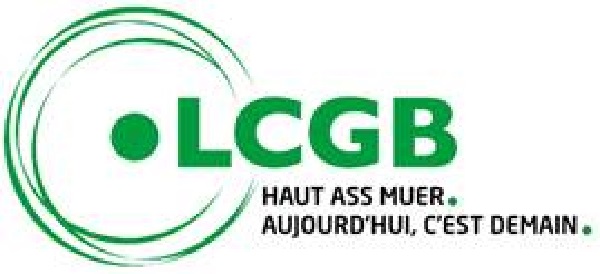
Luxembourg trade union the LCGB has demanded the continuation of the steel tripartite agreement for all Luxembourg sites.
Following the announcement of ArcelorMittal Luxembourg's wishes to proceed with a plan for the transformation of its national sites as well as the approach of the end of the tripartite agreement dated 30 June 2019, the LCGB officially requested a meeting of the tripartite steel industry with the Minister of Economy as well as the Minister of Labour, Employment and the Social and Solidarity Economy.
Thus, on 20 May 2019, the signatory unions of the tripartite agreement, the Minister of Labour, Dan Kersch and representatives of the Ministries of Labour and Economy met the general management of ArcelorMittal Luxembourg. On the occasion of this tripartite meeting, named PostLux 2016 Workforce Monitoring Committee, ArcelorMittal's management provided information on the state of the global, European and national steel markets and presented its transformation plan for Luxembourg production sites in order to cope with this economic situation.
Regardless, the LCGB has emphasised that the company must face difficulties related to the global and European economic situation, which could directly endanger the existence of Luxembourg sites and jobs. Indeed, for the LCGB, the company's decision to review its organisation (and perhaps re-organise) will result in further downsizing.
However, the trade union has argued that ArcelorMittal's senior management is not in a position to provide the quantified consequences of the impact of cost reduction through downsizing. According to the LCGB, this same management does not wish to pursue a tripartite agreement beyond 1 July 2019 because it considers that it is able to assume this reorganisation in strict compliance with the legal framework. However, following the insistence of the LCGB, the Directorate General is ready to continue the social dialogue at the tripartite level which will allow, among other things, the monitoring of the transformation plan and reacting according to the need.
The LCGB recalled the terms of the last agreement and was the only union to retort the needs of production sites in this direction. The trade union has thus reiterated its position: the tripartite tool is no longer just a crisis tool, but it is a real means of support for the durability of employment and this by means of tools, which have made their evidence in the past, including: continuing education and reorientation; the reinstatement of employees in the workplace; serious investments in tools; a preretirement model adapted to individual needs.
In this context, the Luxembourg Government has emphasised the need to strictly respect the commitments of the different parties to the PostLux 2016 agreement. It also took note of the employer's position regarding its wish to join the common law. For its part, the LCGB has confirmed its willingness to discuss this in order to pursue an agreement, which will meet the future needs of the company and which will make it possible to protect all jobs. The trade union has also launched a strong appeal to the government, recalling the importance of the steel industry.
Ultimately, the LCGB has argued for the necessity of a new tripartite steel agreement among which all Luxembourg steel production sites will have to be integrated. This would include the Dudelange site, which, after the acquisition by Liberty House, is no longer part of ArcelorMittal. For the LCGB, the well-being of the employees concerned is paramount with the sole and only objective of defending the interests of all employees, the durability of their jobs and the development of the company in order to continue producing unique products recognised worldwide.








